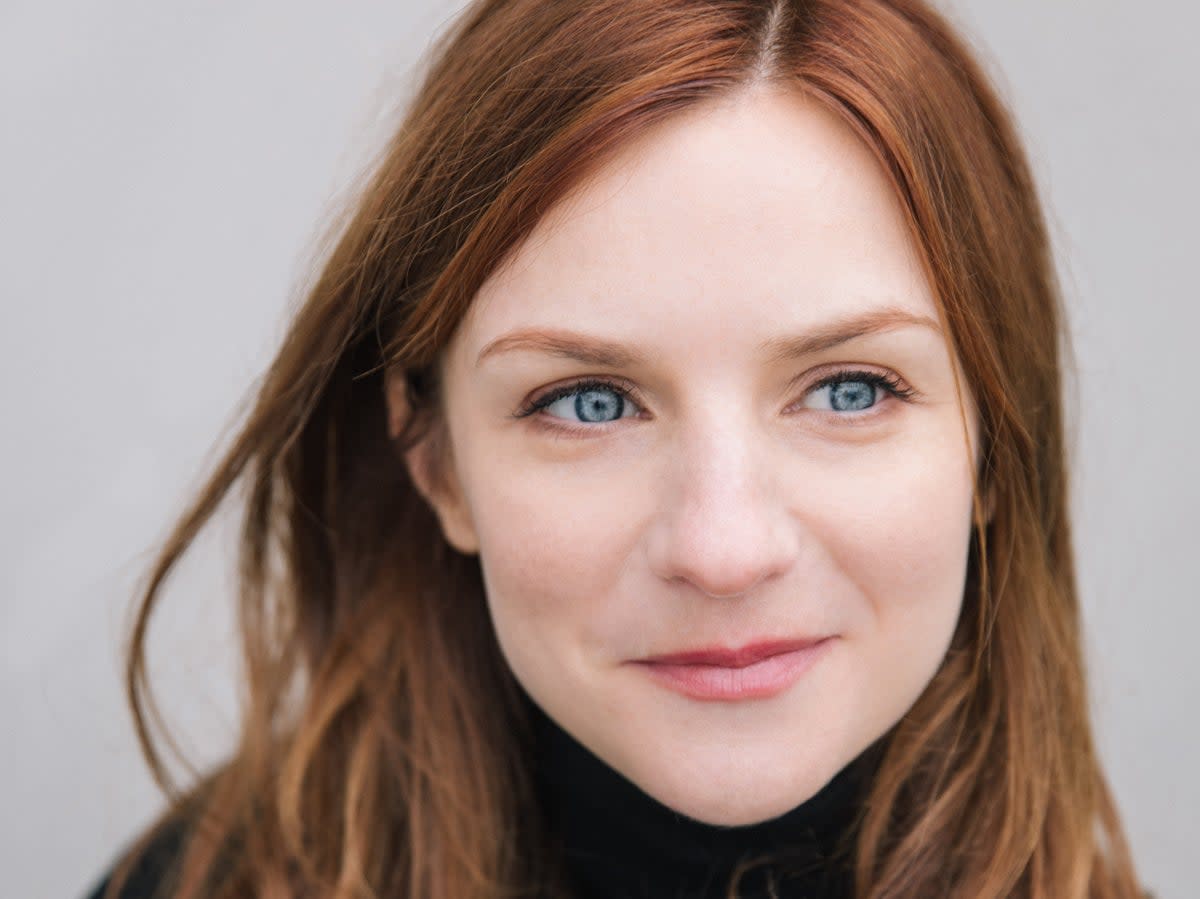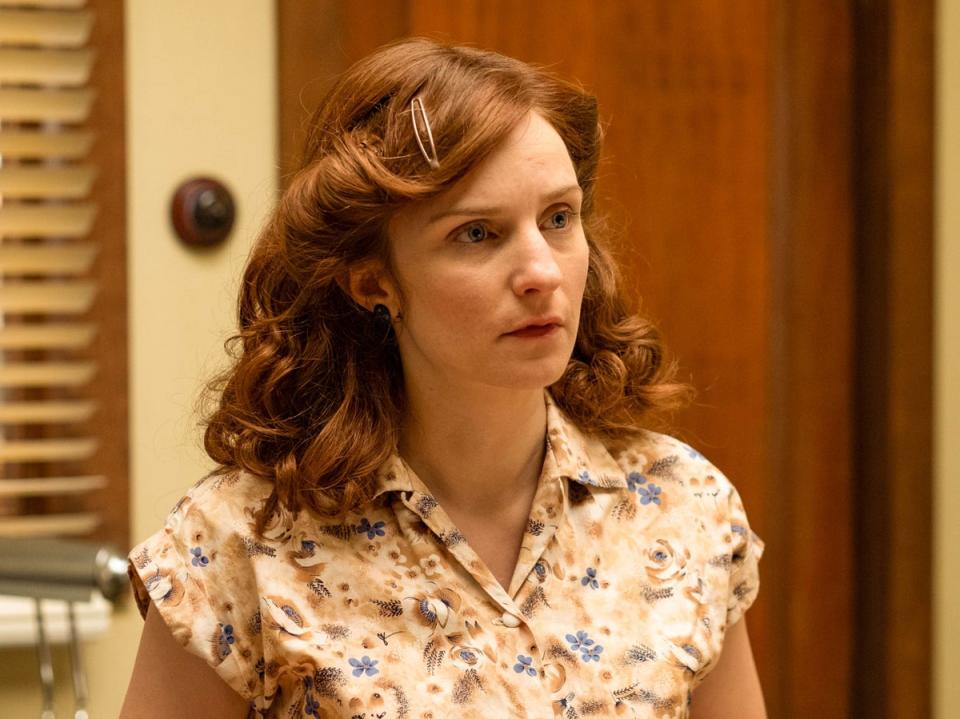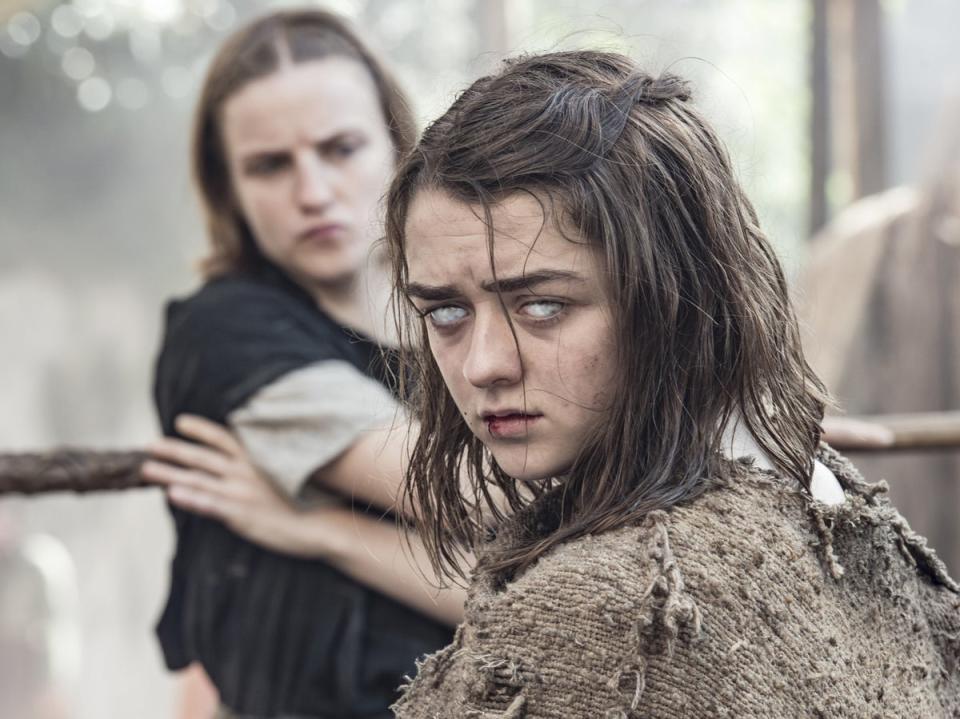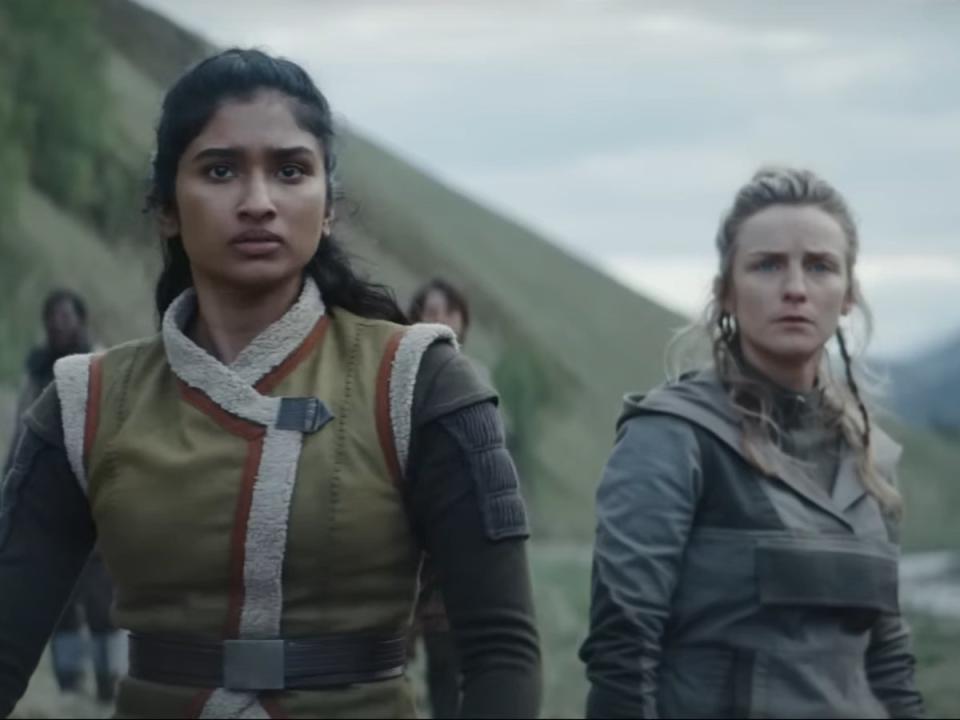Faye Marsay: ‘In Game of Thrones, Maisie was, like, the one – and there I am, hitting her with a stick’

No one believes me, but I’m quite shy,” says Faye Marsay. It’s easy to see why people might struggle to believe the 36-year-old star of Pride, Game of Thrones and the Star Wars spin-off Andor. Acting is, after all, often seen as the reserve of the confident and the outgoing; anyone who’s watched Marsay’s work would see a woman who appears perfectly at home in front of a camera. But I’ve just read back to her a quotation from an old interview, in which she describes herself as “one of those actors who likes to kick the s*** out of myself”. She squirms slightly. “God, I wish I could go and redo all the things I said when I was young and nervous,” she says. “Now, I approach roles with much more kindness to myself. I mean, obviously imposter syndrome still reigns strong. But yeah… I feel sad that I said that about myself back then.”
Marsay is sitting across from me, sharply dressed, in the dining area of a swanky central London hotel. A head cold means that her voice has a slight pinch to it (“it’s like someone’s nipping my nose!”) – but doesn’t dampen her affable northern lilt. The Middlesbrough-born actor has often found herself affecting a Southern accent on screen, with considerable success. This weekend, though, she’s back on screens as a northerner, in the new BBC One drama Ten Pound Poms.
Poms, created by Danny Brocklehurst, is drawn from a relatively little-known moment in 20th-century history: when, in 1956, Brits were offered the chance to move to Australia for just £10. The series focuses on a handful of British immigrants in Oz, and the struggles and prejudices they encounter there. At the centre of this is the headstrong Annie (Marsay) and her husband Terry (Warren Brown), a Second World War veteran. “Annie is at the end of her tether in postwar Britain,” Marsay explains. “She is in a relationship with a man who is obviously struggling from PTSD. But we didn’t know what that was in the Fifties, what that looked like. Everyone was just told to suck it up.
“There’s parts of my family that relate to that character,” Marsay adds. “My great-grandad and great-grandma were alive until I was about 20. So with Annie and Terry, I saw that dynamic within my grandparents – the strong woman, and the man that has been at war.”
Marsay says she took the role to explore parts of her own family life and learn about “this entire period of history that I knew nothing about”. Of course, the prospect of filming Down Under must have also been a draw. “We were told, ‘Bring a bikini, bring flip-flops.’ So I did. And when we arrived, it was freezing, and raining,” she recalls. “We were all in various states of hell, with jetlag. But we immediately just got on with each other. There’s a kind of northern language that we all speak, because we’re all from similar parts of the country.”
Perhaps there’s something Marsay can relate to in the story of a woman adapting to a new life. As a teenager, she wanted to be a footballer, and was a promising attacking midfielder until a knee injury put paid to any hopes (“I’m small – you get kicked a lot”). So she devoted her energies to acting, via a degree at the Bristol Old Vic Theatre School. Her break came in 2013, with a starring role in the BBC’s historical drama The White Queen. The following year, she appeared in Doctor Who, as a character the writers envisioned would become the Doctor’s full-time companion – before a change of heart from the supposedly outgoing Jenna Coleman saw the plans overhauled. Now, Marsay shrugs off this disappointment: “In this business, things change very quickly. It’s not personal. If things had worked out differently, there are lots of jobs that I maybe wouldn’t have been able to do.”

One such job was in Game of Thrones. Throughout seasons five and six of the HBO fantasy series, Marsay played The Waif, an austere, sadistic cult member who trained and tormented Maisie Williams’s young Arya Stark. “After Thrones came out, there was quite intense backlash at one point,” she remembers. “Just because of the character I played. [The fans] hated her. Because Maisie’s character was, like, the one – and there I am, hitting her with a stick.”
The vitriol caused Marsay to “take a step back” from social media; now, her digital footprint is pretty minimal for an actor with her CV. Or, indeed, for anyone. “I’m just a bit rubbish technology-wise,” she chuckles. “I’m like, the worst millennial on earth. The struggle is real! Like, I can’t really properly put a post up. It takes me a while.”
Social media can be a brutal tool, and we all know it
Faye Marsay
I get the sense there’s more to Marsay’s reservations than trouble putting up a post. “The thing is, you’ve got to keep something for yourself,” she says. “This relentless throwing out of who you are. You leave yourself with nothing for you, or your family, or people that look you in your eyeballs instead of through a screen. Those are the people that deserve energy, and they don’t get it if all you’re doing is giving yourself away on the internet every day.”
Aptly, Marsay once played a lead role in the 2016 Black Mirror episode “Hated in the Nation”, a feature-length techno-satire that took the perils of social media to deadly extremes. “Social media can be a brutal tool, and we all know it,” she says. “Look at the mental health crisis that young people are going through right now – that’s not just because of the pandemic, or teenage angst!”

While her Westeros waif may have drawn the ire of Arya stans, reaction to Marsay’s recent Star Wars role has been unanimously positive. This is especially heartening, given the franchise’s reputation for housing a small minority of abusive bigots among its fans. (John Boyega, Kelly Marie Tran and Moses Ingram are among the Star Wars stars who have suffered torrents of racist abuse.) In Andor, Marsay plays Vel Sartha, a queer woman who, along with her partner, Cinta Kaz (Varada Sethu), constitute the first meaningfully queer characters in Star Wars’ 46 years on screen. I ask about a potential backlash, fearing the worst. “I’ve not had any,” Marsay reveals. “Nothing. It’s gorgeous. And reassuring. And the way it should be.”
It probably helped, of course, that Andor is the best Star Wars release in years, a gripping, extremely well-made action-drama about radical resistance in the face of fascism. The significance of Marsay’s role took a while to sink in. “While we were filming, I wasn’t thinking too much about it,” she says. “But then when you think about what it means to the community, and what it says to the massive bunch of people that need to see themselves mirrored in the shows they watch. The further we got, the more myself and Varada were aware that we were the first openly written queer characters, and how important that was.
“The way it was done wasn’t some big announcement,” she continues. “Like I always say: people in the LGBTQI+ community, it’s been going on since the beginning of time; it’ll go on till the end of time. Andor was just normalising the normal. That’s it.”

Vel is one of a number of queer roles Marsay has played across the past decade – a list that also includes the Canadian series Avocado Toast, the 2017 romcom You, Me and Him and, of course, 2014’s Pride, which followed the queer activists who raised money for striking miners during the 1980s.
What does she think about the perennial debate over straight actors’ entitlement to portray LGBT+ characters? “I find this one tricky,” Marsay responds, “because I do think that authentic casting is super important. Because those are lived experiences and there are groups of people who might not get the parts they want by virtue of who they are and what their sexuality or their orientation is. I don’t think it’s [necessarily] this or that. But equal opportunity to explore those roles – certainly for people who were overlooked due to their sexual orientation – I think we need to be mindful of that.”
Like Poms, Pride was a project with a degree of personal resonance for Marsay (she previously described the script as being “close to [her] heart”), who was born at the tail end of Margaret Thatcher’s years in power. “Thatcherism damaged the north of England, and we’re still recovering years and years later,” she says. “There’s a feeling of the generation before me being let down and left behind, and my generation trying to rebuild.”
With the UK’s right-wing government currently at loggerheads with most of the public sector unions, I ask whether Pride feels more relevant than ever. “Yeah, I think it’s tricky, because the culture we’re in right now is very polarised. The algorithm is strong. So people are only seeing what their beliefs are.” The tech-averse actor is talking about the way social media algorithms serve up content they know that users will agree with – something that has only intensified political divides on issues such as rail strikes.
“I believe that’s how an algorithm [works],” she adds. “But like I said, I’m a rubbish millennial.”
‘Ten Pound Poms’ will premiere on BBC One and iPlayer at 9pm on Sunday 14 May, airing weekly on BBC One, with all episodes available on iPlayer immediately


